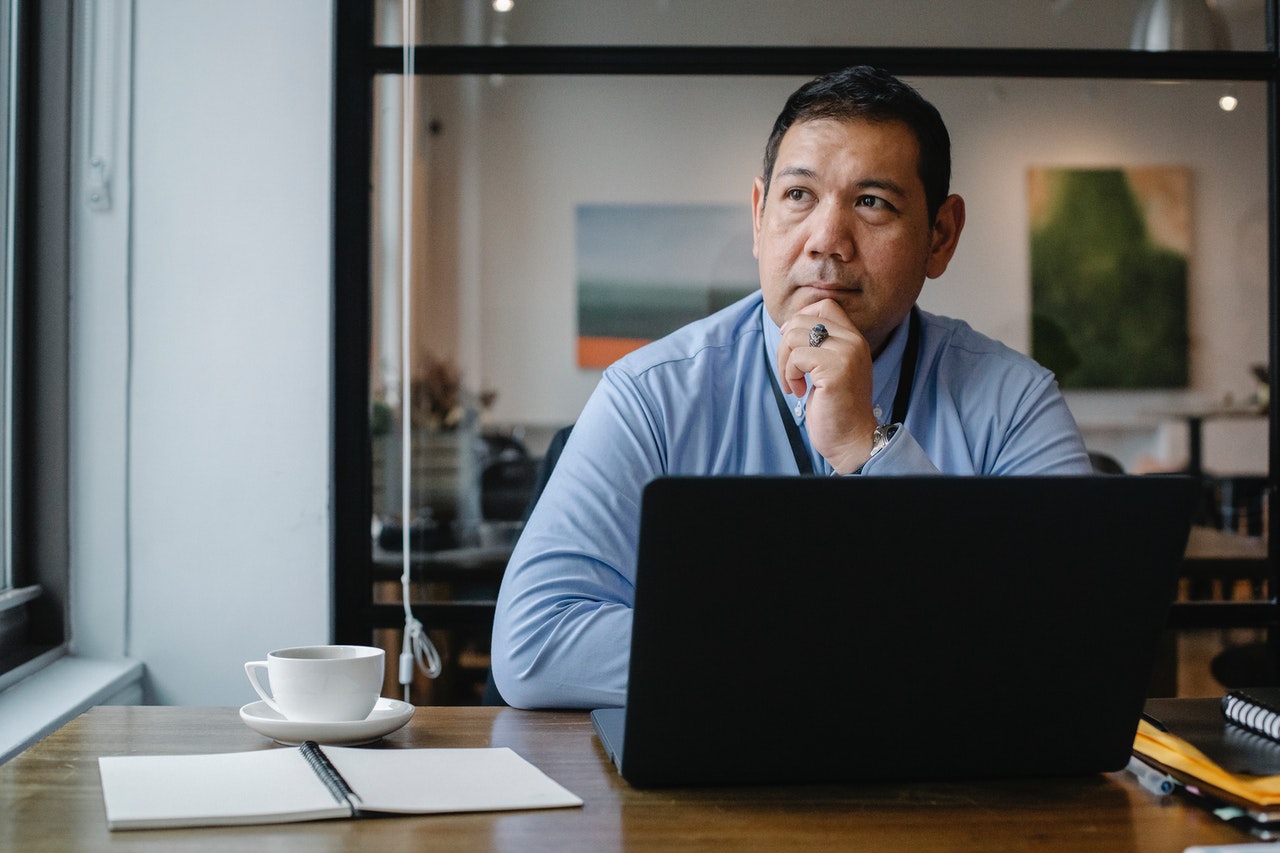How to Communicate Effectively – A Helpful Guide
Effective communication is essential in all aspects of life.
Whether it’s at home, at work or in your social circles, knowing how to communicate effectively is key to establishing positive relationships and achieving success.
Communicating effectively means understanding how to send and receive messages in a way that ensures the exchange of accurate information. It also involves being aware of your own communication style and the styles of others, so you can adapt your approach accordingly.
There are a number of different ways to communicate effectively, but the most effective approach depends on the situation and the dynamics involved.
However, there are a few general tips that I want to share with you which can help you communicate effectively no matter what the context.
Table of Contents
Be an Engaged Listener

One of the most important but overlooked aspects of effective communication is being an engaged listener. This means paying attention to the other person, understanding what they’re saying and asking questions if you don’t understand. It also means not interrupting and giving them time to finish their thoughts.
Being an engaged listener shows that you’re interested in what they have to say and that you respect their opinion. It also makes them feel valued and appreciated, which can help to build stronger relationships.
Your audience will be more likely to listen and be responsive to you in return if you’re an engaged listener, so it’s a skill that’s worth practicing.
Take the Time to Think

Before you communicate, take the time to think about what you want to say and what you expect to achieve as a result. This will help you to stay focused and avoid getting sidetracked.
It will also help you to stay calm and in complete control during the conversation. If you’re feeling angry or emotional, it’s best to wait until you’ve calmed down before communicating with anybody.
When you take the time to carefully craft your message, it will be of a higher quality and more likely to produce the desired results. You will also be less likely to say something that you’ll regret later.
Choose the Right Communication Channel

Not all forms of communication are equally effective. Some channels are better suited for certain types of messages than others.
For example, if you’re trying to build a relationship with the other person, it’s best to use face-to-face communication. This allows you to see their facial expressions and read their body language, which can give you a better understanding of who they are and where they’re coming from.
If you need to give them constructive feedback, it might be better to use written communication. This will allow you to take the time to craft your message and avoid any potential misunderstandings.
It’s also important to be aware of the other person’s preferred communication channel. Some people are more comfortable communicating face-to-face, while others prefer to communicate through written messages.
Adjust your communication style to match their preferences. If you’re not sure what their preferences are, just ask them.
Avoid using email or text messages to communicate sensitive information
While email and text messages are great for sending quick updates or messages, they’re not ideal for effectively communicating personally important or sensitive information.
This is because the tone of these messages can be easily misinterpreted, and it’s difficult to convey emotions or facial expressions. It’s also easy to misinterpret the meaning of a message when you’re not speaking face-to-face.
If you need to communicate something important, it’s best to call them or meet in person. This will help ensure that the message is communicated clearly and without any misunderstandings.
Be Clear and Concise
Don’t beat around the bush; get to the point. When you’re communicating with someone, make sure your messages are clear and concise. This means using language that is easy to understand and avoiding jargon and technical terms unless the other person is familiar with them.
It also means breaking down your points into clear, easy-to-follow steps or action items. This will help the other person understand what you’re asking them to do and make it easier for them to respond.
If you can’t fit everything you want to say into a single message, send a follow-up message or schedule a time to talk with them. This will ensure that they have enough time to digest your message and give you a response.
Be Aware of Your Nonverbal Communication
Nonverbal communication accounts for a large percentage of the overall message that you send. This includes your facial expressions, gestures, posture and tone of voice.
While nonverbal communication is often subconscious, it can be just as powerful as the words that you use. So it’s important to be aware of the nonverbal signals that you’re sending and make sure they match the message that you’re trying to send.
For example, if you’re trying to come across as friendly and approachable, you’ll want to smile, make brief eye contact and use a warm tone of voice. If you’re trying to be assertive, you’ll want to stand up straight, make longer eye contact and use a firmer tone of voice.
The key is to be aware of how you’re coming across and adjust your nonverbal signals accordingly. Mastering this technique is an essential part of how to communicate effectively.
Put Yourself in the Other Person’s Shoes
Another key to effective communication is to put yourself in the other person’s shoes. This means trying to understand their perspective and seeing things from their point of view.
It also means being willing to compromise and finding common ground. When you’re able to see things from someone else’s perspective, it makes it easier to find solutions that work for everyone involved.
The bottom line is that knowing how to communicate effectively involves understanding your audience’s point of view and working together to find a solution that everyone can agree on.
Be Direct
Use “I” statements to communicate your own thoughts and feelings instead of speaking in generalities. People are more likely to be responsive if you’re clear and direct about what you want which is a fundamental part of effective communication.
For example, rather than saying “I don’t like that,” say “I don’t like it when you do this.” This will help them understand where you’re coming from and make it easier for them to respond.
It’s also important to be clear about your expectations and boundaries. This means setting ground rules for how you expect to be treated and what you’re willing to accept.
When you’re direct and upfront about your expectations, it makes it easier for your audience to meet them.
Be Mindful of Your Tone
Your tone of voice can be just as important as the words that you use. It can be used to express your emotions and help the other person understand where you’re coming from.
For example, if you’re angry, your tone will probably be louder and more aggressive than normal. If you’re sad, your tone will probably be softer and more subdued.
It’s important to be aware of your tone and adjust it accordingly. If you’re not sure how you sound, ask a friend to listen to the conversation and give you their feedback. This is an important but often overlooked step in learning how to communicate effectively. You will never be able to accurately gauge exactly how you sound to an audience without getting feedback from someone else.
Tone isn’t only perceived as audible, it’s can also be perceived visually. So make sure that your facial expressions match the tone of your voice. For example, if you’re trying to come across as friendly and approachable, you’ll want to smile, make eye contact and use a warm tone of voice.
Even written communication has a tone, so be mindful of the words you choose and how they might be interpreted. For example, sarcasm and irony are often difficult to interpret in writing, so it’s best to avoid using them if you’re not sure how the other person will react.
Avoid Using Passive Language
Passive language is often seen as weak and ineffective. It can make it difficult for other people to understand where you’re coming from which can be frustrating to deal with.
For example, instead of saying “I need you to do something,” try saying “Can you please do this for me?”
Or instead of saying “I don’t like it when you do this,” try saying “It makes me feel uncomfortable when you do this.”
These types of statements are more direct and will make it easier for the other person to understand what you’re trying to say.
You will also appear more authoritative and people will be more likely to take you seriously.
End on a Positive Note
There’s no use in knowing how to communicate effectively with all the steps above yet still leaving people with a bitter feeling after you’ve delivered your message.
When you’re finished communicating, always end on a positive note.
For example, you could say “I really appreciate your help,” or “I enjoyed talking to you,” or even just “thank you.”
If you found the conversation challenging, try to find at least one positive thing to say about it. For example, you could say “I learned a lot from this conversation,” or “I appreciate your willingness to discuss this with me.”
By ending on a positive note, even if much of the content of the message may not have been positive at all, you’ll help to ensure that your audience has a good overall impression of you and will be more likely to want to work with you in the future.
Conclusion
Effective communication is essential not only for your ideas to be heard, but also so that you can be completely understood.
To achieve this, it’s important to be aware of the different ways how to communicate effectively.
Be mindful of the tone of your voice, the words you choose and the communication channels you use. Adjust your communication style to match the other person’s preferences, and avoid using passive language. By doing this, you’ll be able to communicate effectively and build strong, lasting relationships.
Give yourself time to learn and improve your communication skills. It takes time and practice to develop effective communication skills.
Don’t be afraid to ask for feedback from the other person, and be willing to listen to their suggestions. Try practicing your communication skills in different situations and with different types of people.
The more you practice, the better you’ll become at communicating effectively.



